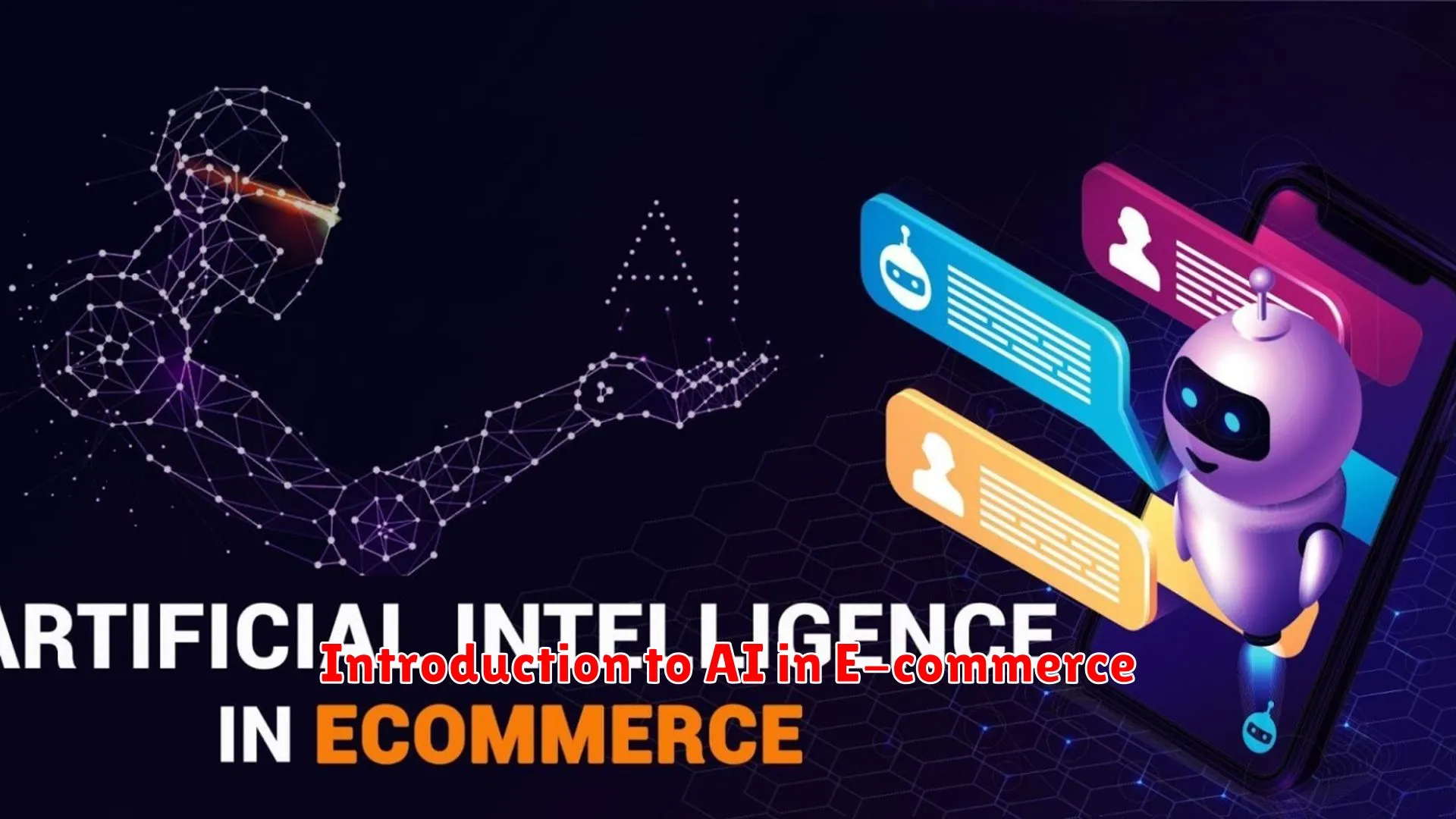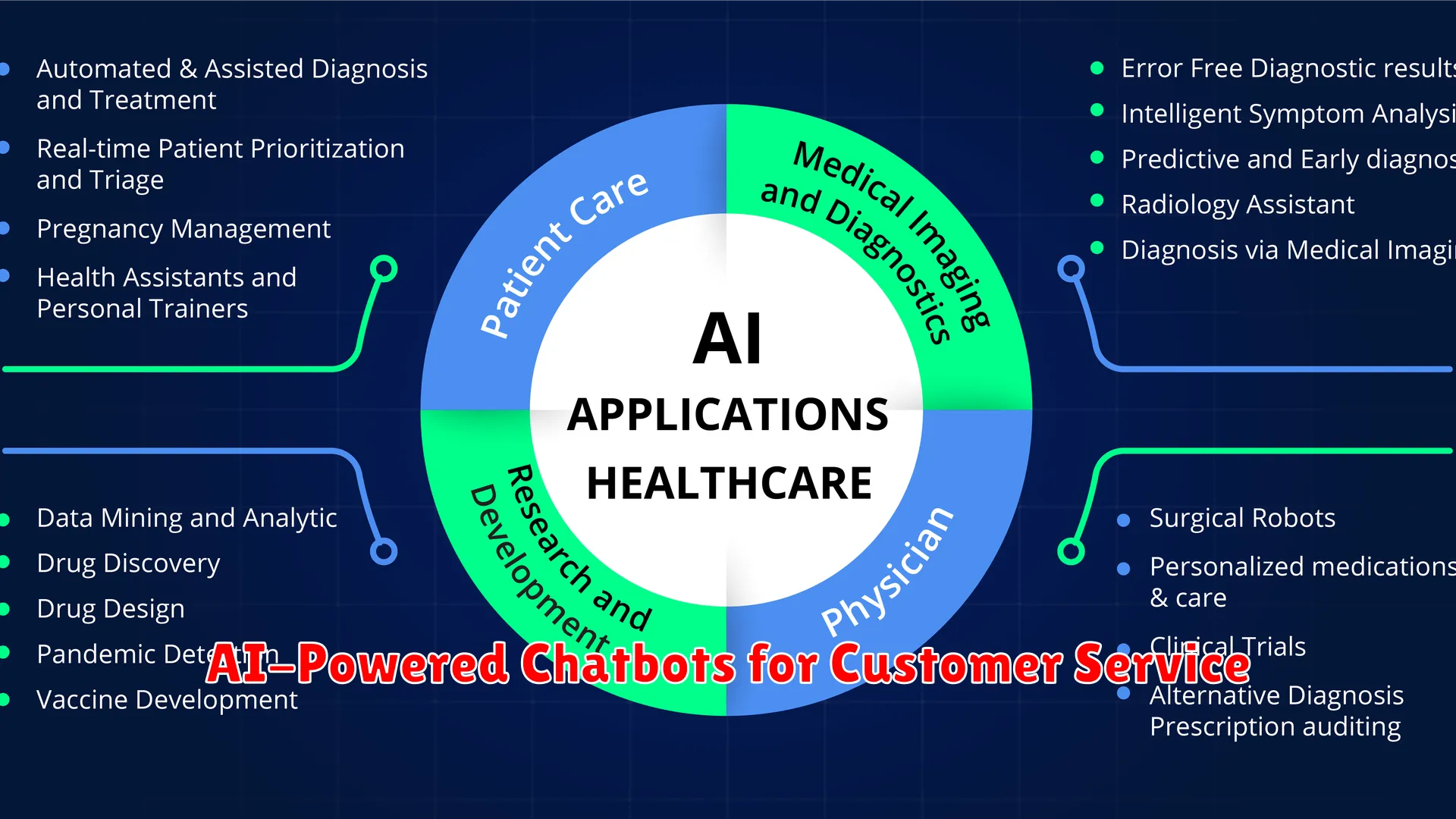Discover how Artificial Intelligence is revolutionizing the E-commerce industry. Explore the latest trends and innovative applications shaping the future of online shopping.
Introduction to AI in E-commerce

In recent years, the integration of Artificial Intelligence (AI) in e-commerce has revolutionized the way businesses operate and interact with customers. AI, a technology that simulates human intelligence processes, plays a significant role in enhancing customer experience, streamlining operations, and driving sales in the e-commerce industry.
One of the key applications of AI in e-commerce is personalized recommendations. By analyzing customer behavior, preferences, and purchase history, AI-powered recommendation engines can suggest products that are tailored to each individual user, increasing the likelihood of a purchase. This personalized approach enhances user engagement and ultimately boosts sales.
Moreover, chatbots powered by AI have become a common feature on e-commerce websites. These virtual assistants can provide real-time support to customers, answer queries, and assist in the buying process. By utilizing chatbots, e-commerce businesses can offer round-the-clock customer service, improve response times, and enhance overall user satisfaction.
AI has also been instrumental in optimizing supply chain management in e-commerce. Through predictive analytics and machine learning algorithms, AI can predict demand, optimize inventory levels, and streamline the logistics process. This results in faster deliveries, reduced costs, and improved efficiency for online retailers.
Personalized Shopping Experiences with AI

In today’s digital age, the utilization of Artificial Intelligence (AI) is revolutionizing the e-commerce industry. One significant impact of AI in e-commerce is the ability to provide personalized shopping experiences for customers.
AI algorithms can analyze vast amounts of customer data, including past purchases, browsing history, and preferences, to tailor recommendations specifically to each individual. By understanding consumer behavior and preferences on a granular level, AI can create customized product suggestions that are more likely to resonate with customers.
Moreover, AI-powered e-commerce platforms can offer personalized discounts and promotions based on a customer’s buying patterns and interactions with the website. This targeted approach not only enhances the shopping experience but also increases customer loyalty and boosts sales for businesses.
Through the integration of AI technologies such as machine learning and natural language processing, e-commerce companies can interact with customers in a more human-like manner, providing real-time assistance and answering queries promptly.
As AI continues to advance, the personalization of shopping experiences in e-commerce will become even more intricate, offering consumers a seamless and tailored journey from product discovery to checkout.
AI-Powered Chatbots for Customer Service

In the realm of E-commerce, AI-powered chatbots have emerged as invaluable tools for enhancing customer service experiences. These chatbots, fueled by artificial intelligence technologies, play a pivotal role in revolutionizing the way businesses interact with customers on digital platforms.
One significant benefit of employing AI-powered chatbots in customer service is their 24/7 availability. Unlike human agents, these chatbots can provide instant responses to customer inquiries, ensuring round-the-clock support and assistance for online shoppers.
Moreover, AI chatbots are adept at understanding natural language processing, making interactions with customers more conversational and intuitive. By leveraging machine learning algorithms, these chatbots continuously improve their responses based on past interactions, leading to personalized and efficient customer support.
Furthermore, AI-powered chatbots can handle multiple customer queries simultaneously, reducing response times and enhancing overall operational efficiency for E-commerce businesses. This scalability aspect allows companies to cater to a large volume of customer requests effortlessly.
As technology advances, the integration of AI in chatbots continues to refine customer service experiences in E-commerce, fostering enhanced engagement and satisfaction for online consumers.
Inventory Management and Demand Forecasting

Efficient inventory management is a critical aspect of running a successful e-commerce business. By utilizing artificial intelligence (AI) technologies, businesses can streamline their inventory processes and improve overall operations. AI algorithms can analyze historical sales data, trends, and customer behavior to optimize inventory levels. This, in turn, helps businesses reduce holding costs, prevent stockouts, and improve customer satisfaction levels.
Demand forecasting plays a vital role in ensuring that e-commerce businesses can meet customer demands effectively. AI systems can analyze vast amounts of data to predict future demand patterns with greater accuracy. By leveraging AI-powered forecasting models, businesses can anticipate market trends, launch targeted marketing campaigns, and adjust inventory levels accordingly to meet demand fluctuations.
The integration of AI in inventory management and demand forecasting not only enhances operational efficiency but also enables businesses to adapt quickly to changing market dynamics. With AI, e-commerce companies can stay agile, minimize excess inventory, and make data-driven decisions to stay ahead of the competition in the ever-evolving digital landscape.
AI in E-commerce Marketing and Advertising

Artificial Intelligence (AI) is revolutionizing the landscape of E-commerce marketing and advertising, providing businesses with powerful tools to enhance customer experience, drive sales, and optimize promotional strategies. AI technologies have become indispensable in the E-commerce industry, offering innovative solutions that cater to the evolving needs of both businesses and consumers.
Personalized Recommendations: One of the key applications of AI in E-commerce marketing is the generation of personalized product recommendations. By analyzing consumer behavior and preferences, AI-powered algorithms can suggest tailored products to individual shoppers, increasing the likelihood of conversion and fostering customer loyalty.
Behavioral Targeting: AI enables E-commerce platforms to implement targeted advertising based on user behavior and interactions. By leveraging machine learning algorithms, businesses can deliver relevant ads to specific customer segments, thereby maximizing the efficiency of their marketing efforts and improving ROI.
Chatbots and Customer Service: AI-powered chatbots have transformed customer service in E-commerce, providing instantaneous support to users and resolving queries in real-time. These virtual assistants are capable of handling a wide range of customer interactions, offering personalized assistance and enhancing overall shopping experiences.
Predictive Analytics: Through AI-driven predictive analytics, E-commerce companies can forecast consumer behavior, identify trending products, and optimize pricing strategies. These insights empower businesses to make data-driven decisions, improve inventory management, and capitalize on market trends.
Ethical Considerations and Privacy Concerns

As artificial intelligence (AI) continues to revolutionize the e-commerce landscape with its advanced algorithms and personalized shopping experiences, there arises a pressing need to address the ethical considerations and privacy concerns associated with its widespread adoption.
Data Privacy: One of the primary concerns surrounding AI in e-commerce is the collection and utilization of vast amounts of consumer data. E-commerce platforms often gather data on customers’ browsing history, purchase behavior, and personal preferences to tailor their shopping recommendations. However, this raises questions about the transparency of data usage, consent, and the protection of individuals’ privacy.
Algorithm Bias: AI algorithms used in e-commerce can inadvertently perpetuate bias, leading to discrimination in product recommendations, pricing, or targeted marketing campaigns. It is crucial for businesses to mitigate algorithmic bias and ensure fairness in their AI systems to uphold ethical standards.
Consumer Trust: Maintaining consumer trust is essential for the long-term success of e-commerce businesses leveraging AI technologies. Implementing clear policies regarding data collection, storage, and usage, as well as offering transparent opt-in/opt-out mechanisms, can help build trust and foster positive customer relationships.
Regulatory Compliance: Governments and regulatory bodies are increasingly scrutinizing the use of AI in e-commerce to safeguard consumer rights and prevent potential abuses. Adhering to existing data protection regulations such as GDPR and staying informed about emerging laws and guidelines is crucial to ensure compliance and mitigate legal risks.
Ethical Decision-Making: When deploying AI solutions in e-commerce, businesses must prioritize ethical considerations and responsible AI practices. This includes promoting transparency in algorithmic decision-making, incorporating ethical guidelines into AI development processes, and actively seeking input from diverse stakeholders to address potential ethical dilemmas.
By addressing these ethical considerations and privacy concerns, e-commerce companies can harness the transformative power of artificial intelligence while upholding ethical principles and protecting consumer rights in the digital marketplace.
Case Studies: Companies Leveraging AI in E-commerce

Artificial Intelligence (AI) has revolutionized the e-commerce industry, offering companies new ways to enhance customer experience, optimize operations, and boost sales. Let’s explore how some leading companies effectively utilize AI in their e-commerce strategies:
1. Amazon:
Known for its personalized shopping recommendations, Amazon effectively leverages AI algorithms to analyze customer behavior, predict preferences, and suggest relevant products. This tailored approach enhances the overall shopping experience and increases customer satisfaction.
2. Alibaba:
Alibaba’s e-commerce platform utilizes AI-powered chatbots and virtual assistants to offer real-time customer support, answer queries, and guide users through their purchasing journey. These AI-driven interactions streamline the buying process and improve customer service.
3. eBay:
eBay employs AI for dynamic pricing optimization, allowing the platform to adjust prices based on market demand, competitor pricing, and user behavior. This intelligent pricing strategy helps eBay remain competitive and maximize revenue.
4. Spotify:
Although primarily a music streaming platform, Spotify uses AI algorithms to analyze user preferences and behavior to deliver personalized playlists and recommendations. By harnessing AI capabilities, Spotify enhances user engagement and retention.
These case studies demonstrate the diverse applications of AI in e-commerce, emphasizing the significant impact of artificial intelligence on transforming the online shopping landscape.
Conclusion: The Future of AI in the E-commerce Industry

As we look ahead at the future of AI in the e-commerce industry, it is clear that artificial intelligence will continue to revolutionize how online businesses operate and engage with consumers. The advancements in AI technology, coupled with the increasing adoption of AI-driven solutions by e-commerce companies, point towards a dynamic landscape where personalization, efficiency, and customer experience will be at the forefront of innovation.
With AI algorithms becoming more sophisticated and capable of analyzing vast amounts of data in real-time, e-commerce retailers will be able to anticipate consumer trends, personalize recommendations, and offer tailored shopping experiences that cater to individual preferences. This level of personalization not only enhances customer satisfaction but also boosts conversion rates and loyalty.
Moreover, the integration of AI-powered chatbots and virtual assistants will further streamline the customer service process, providing instant support and handling queries more efficiently. Automated processes such as inventory management, pricing optimization, and fraud detection will also enable e-commerce businesses to operate smarter and more cost-effectively.
Looking forward, the expansion of AI into areas such as visual search, voice commerce, and predictive analytics will drive innovation and reshape the online shopping experience. E-commerce platforms that embrace AI technologies and prioritize data-driven strategies will stand to gain a competitive edge and captivate the modern shopper.
Conclusion
Artificial Intelligence is revolutionizing E-commerce with personalized recommendations, chatbots, and improved customer experiences, paving the way for a more efficient and data-driven online shopping landscape.

